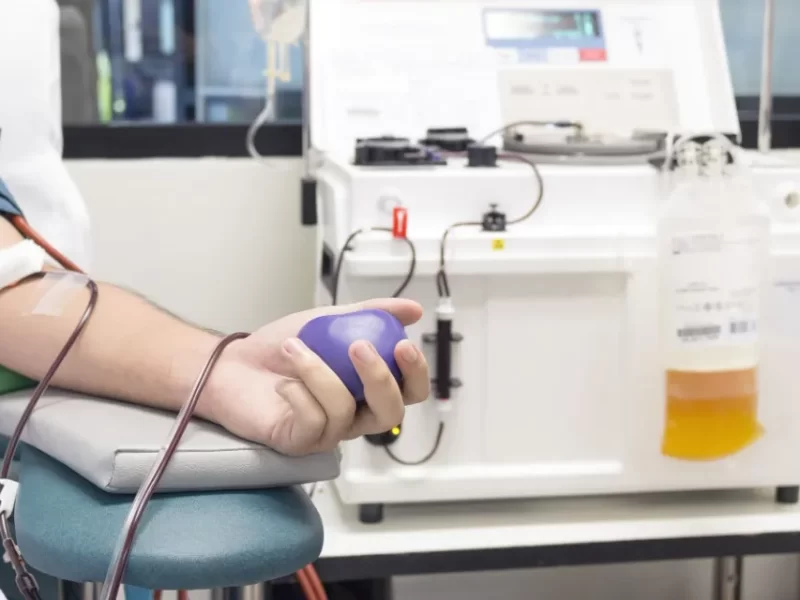One of the most trying experiences in life is losing someone you love. Pain, shock, and intense grief frequently accompany a loss. The last thing that one would like to think, but eventually has to is, “What do I do now?”
You want to make sure things are done correctly, fairly, and most importantly, legally. You’re trying to avoid conflict, hassle, and stress. Time and money savings are priorities. This article will help you make good decisions following the loss of a loved one. See our 8 tips for things you shouldn’t do after they’ve died。
8 Things Not to Do When Someone Dies
Hasty Decisions
There are many decisions that may need to be made quickly after someone passes away, such as whether or not to donate the deceased’s organs, but not all of them do. Give yourself enough time to speak with various funeral service providers and ask the necessary questions to make you feel at ease using their services. Don’t feel pressured to decide right away; hospitals will typically hold the body until you are prepared to make arrangements. Taking this time will also give you the chance to find out more about the funeral or memorial service your loved one wanted to have — if they wanted to have any at all.

Immediately Sort Out the Relics
It can be difficult to organize your own possessions. If you don’t know how they usually kept things organized, sorting through the belongings of someone you recently lost can be logistically challenging in addition to being emotionally challenging.
Try to group items into categories like: legal documents, items of personal value, and other valuables instead of going through their belongings piece by piece or even room by room. You can begin to construct an organizational structure that will be useful to you later on by identifying these components and grouping them together. While assistance is helpful during this process, you may want to hold off on distributing any of the deceased’s possessions until you have located their will, spoken with the executor, and are aware of their explicit wishes, even to family members or close friends.
Inform Banks
This may seem counterintuitive, but telling the bank prematurely can result in a host of problems that will take a considerable amount of time, money, and legal support to fix. First, you should meet with an attorney who is a Certified Specialist in Estate Planning, Trust and Probate Law to develop a plan of action to minimize your costs, obligations, and liabilities. You run the risk of having your accounts frozen if you contact the bank before speaking with a lawyer. This could cause direct deposits, auto payments, and, most importantly, mortgage payments to be severely delayed.
Give Away Or Promise Any Items to Loved Ones
Regardless of whether a trust or will has been established, you shouldn’t distribute a loved one’s assets until you’ve met with a lawyer who is a Certified Specialist in Estate Planning, Trust and Probate Law. The laws surrounding a decedent’s estate and assets are complicated, and you will be held financially and legally responsible for any mistakes you make during the process. Waiting to distribute family heirlooms and other belongings until after you have a meeting with an attorney will help you avoid complications, family disputes, and legal actions. If someone mentions the decedent said they could have something when they died, tell them you’ll write it down and check to see if it’s in the will or trust when you meet with an attorney.
Forget to Call Their Pension
It is essential that you call the decedent’s pension as soon as you can if they were receiving benefits. Delaying your notification to their pension can have similar consequences to delaying social security, including overpayments, legal obligations, fines, and fees. Their pension has a legal right to collect those overpayments, and they will find a way to make sure they get their money back. Save yourself the trouble – call their pension right away. (Side Note: this advice applies only to pension benefits, not other retirement accounts. The same standard should apply to other retirement accounts as with banks.)

Making Big Financial Decisions Too Soon
After losing a loved one, you might want to postpone making any significant financial decisions, particularly if that person was someone you relied on to manage your finances. It might take some time before you learn what unpaid bills and debts the deceased had, so it’s a good idea to leave the deceased’s estate intact until you know which debts will need to be paid off and which ones will be forgiven.
Before making any significant financial decisions, such as withdrawing your spouse’s IRA or selling a house, it may be helpful to speak with a financial advisor in addition to an estate planner to better understand the financial ramifications of the deceased’s assets, particularly if the loss of your loved one has affected your household income.
Sell Their Personal Assets
Similar to giving away personal property, selling personal property can lead to future legal issues. Several factors, such as whether a will or trust was in place, who has the authority to make these decisions, etc., will determine how the law will permit the handling of their personal assets. The difficulties in properly allocating the proceeds from the sale of their personal assets are another issue. You should hold off on selling any of their private property until you’ve had a meeting with a lawyer who is a Certified Specialist in Estate Planning, Trust and Probate Law.
Allow Other People to Move in to Their House
Although it might be appealing to let a loved one move into the decedent’s home while things are still in flux in order to assist them, doing so actually puts you at risk both legally and financially. Legally, the tenants would be required to pay rent, which would then be distributed to the beneficiaries and estate in the proper proportions. Additionally, you might be setting yourself up for a nasty eviction situation that might ruin your family ties if they decide to raise a fuss later. Before you decide to permit anyone to move into their home, wait until you have spoken with a lawyer who is a Certified Specialist in Estate Planning, Trust and Probate Law.
Things to Do When Someone Dies
Obtaining a Legal Death Sentence
If a doctor was present when your loved one passed away in a hospital or nursing home, the staff will take care of this. A death certificate, a vital piece of paperwork, can only be obtained after an official declaration of death has been made. However, you’ll need to get a doctor to certify your relative’s death if she passed away at home, especially if it was unexpected. To accomplish this, dial 911 as soon as she passes away to arrange for her to be taken to an emergency room, where she can be pronounced dead and transferred to a funeral home. A hospice nurse may pronounce your relative dead if he passed away at home while receiving care from the hospice. Without a death certificate, it is impossible to organize a funeral or take care of the deceased’s legal affairs.
Tell Friends and Family
To inform people that a loved one has passed away, send out a mass text or email, make individual phone calls, or both. Examine the deceased’s email and phone contacts to find the contact information for everyone who needs to know. Inform coworkers, members of any social groups the person belonged to, and the church. Ask the recipients to inform the deceased’s friends and family so that more people will be informed. If you have access, post about the death on social media, both on your account and the account of the deceased.
Learn About Available Funeral and Burial Plans
“Ideally, you had the opportunity to talk with your loved one about his or her wishes for funeral or burial,” writes Sally Balch Hurme, an elder law attorney and author of List of items for family survivors. In the event that you didn’t, she suggests that you look for a letter of instruction in the deceased’s papers or convene a family gathering to start a first discussion about the funeral’s details. This is crucial if he didn’t leave any instructions. You must talk about the person’s wishes for a funeral, what you can afford, and what the family wants.
Conclusion
It can be difficult and confusing to decide what to do with a loved one’s personal belongings and estate after they pass away. As you navigate the current task, hopefully this list will give you some direction. One of the best things you can do to lessen your responsibility during this process is to seek assistance, preferably in the form of legal counsel.



